In today’s job market, you need to stand out from the crowd to land your dream job. A resume is your first opportunity to show hiring managers that you are the best candidate for the job. For example, if you want to work as a housekeeper, you must have a strong resume that will catch the attention of potential employers. Suppose you’re looking to work as a housekeeper and are revising your CV in preparation. In that case, you probably already have some work experience in this field and now want to find a new job with better opportunities. Therefore, a resume for housekeeping is essential for most job applications or interviews. With so many different types of resumes out there, it can be tricky to know which one is right for you. There are many other formats and even more tips on presenting your data when applying for jobs.
Housekeeping Resume Example

Download This Housekeeping Resume as PDF
Housekeeping Aide Resume Example
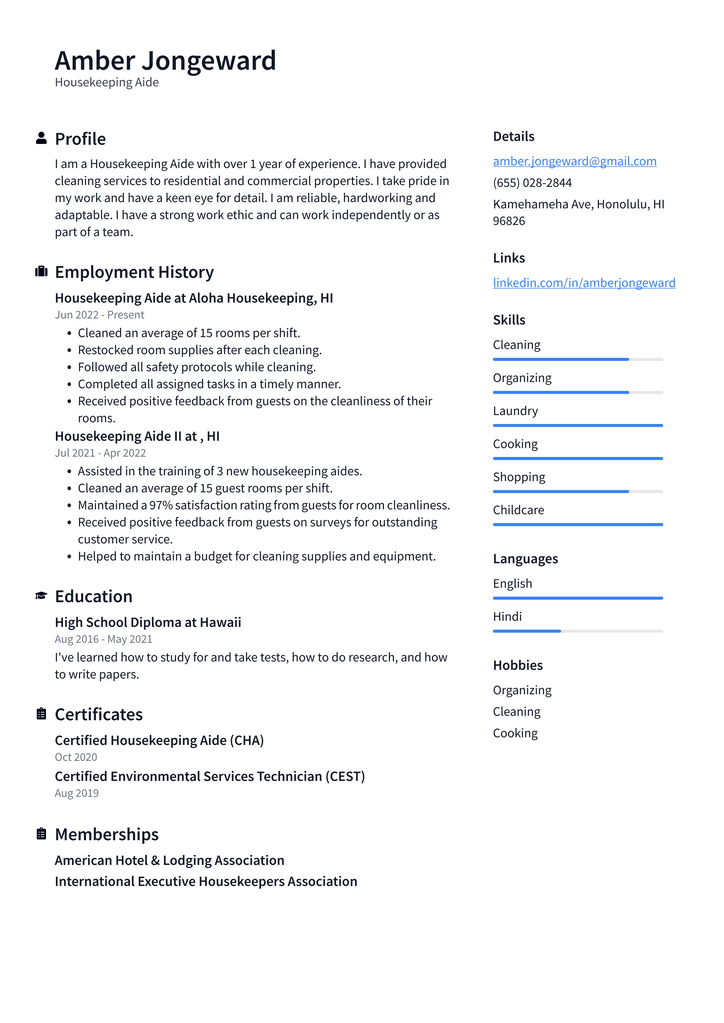
Download This Housekeeping Aide Resume as PDF
Housekeeper Resume Example
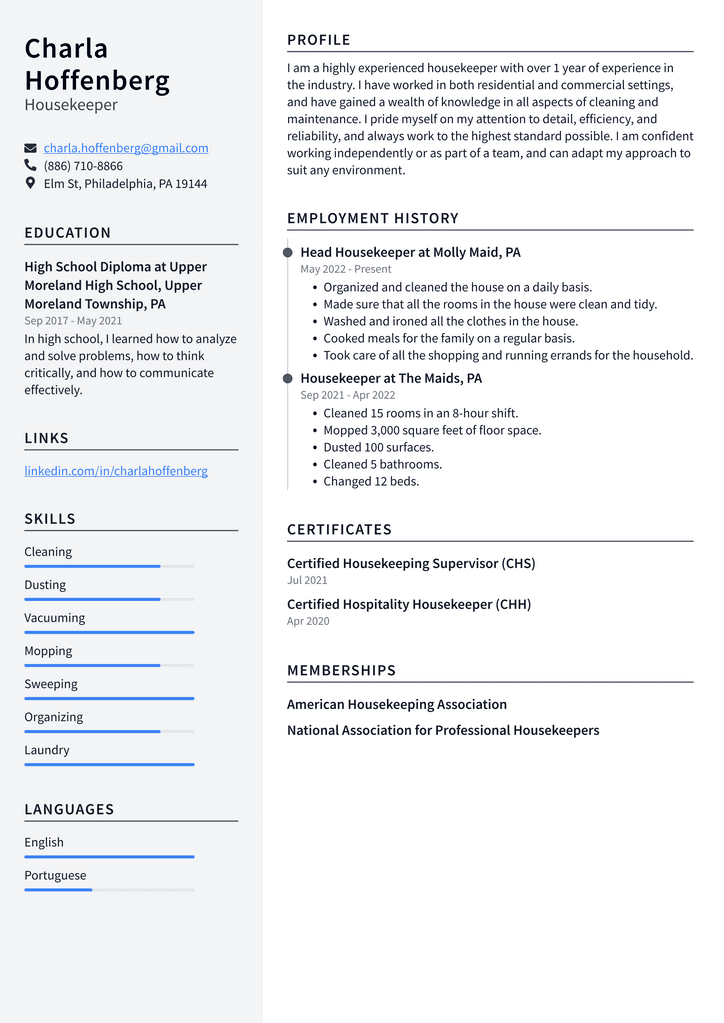
Download This Housekeeper Resume as PDF
Housekeeping Supervisor Resume Example
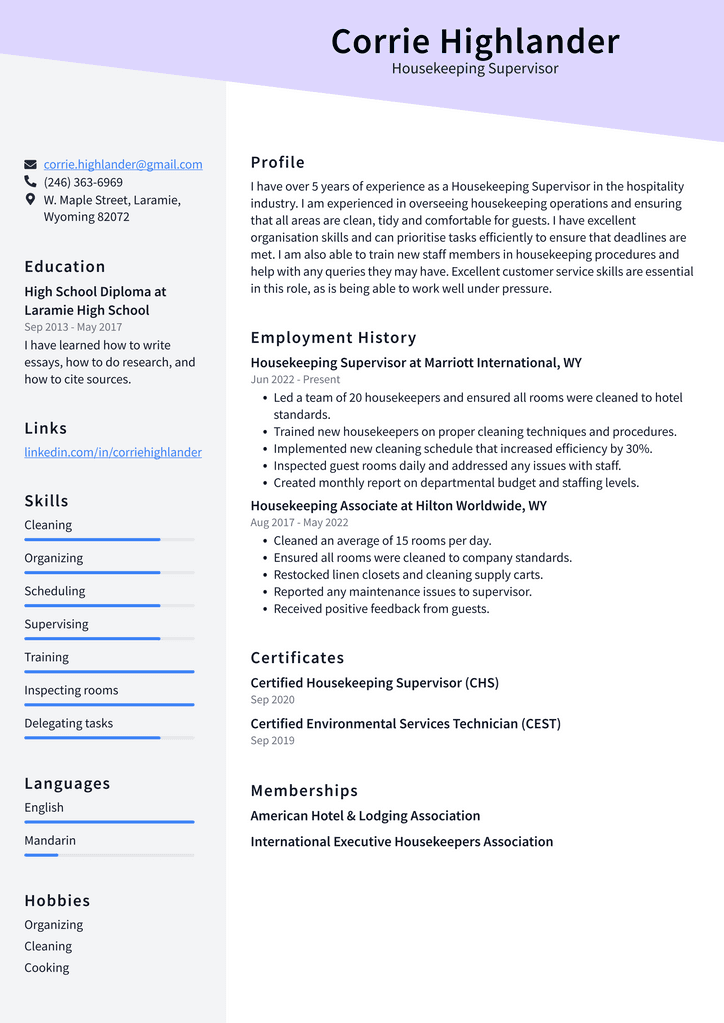
Download This Housekeeping Supervisor Resume as PDF
Public Area Attendant Resume Example
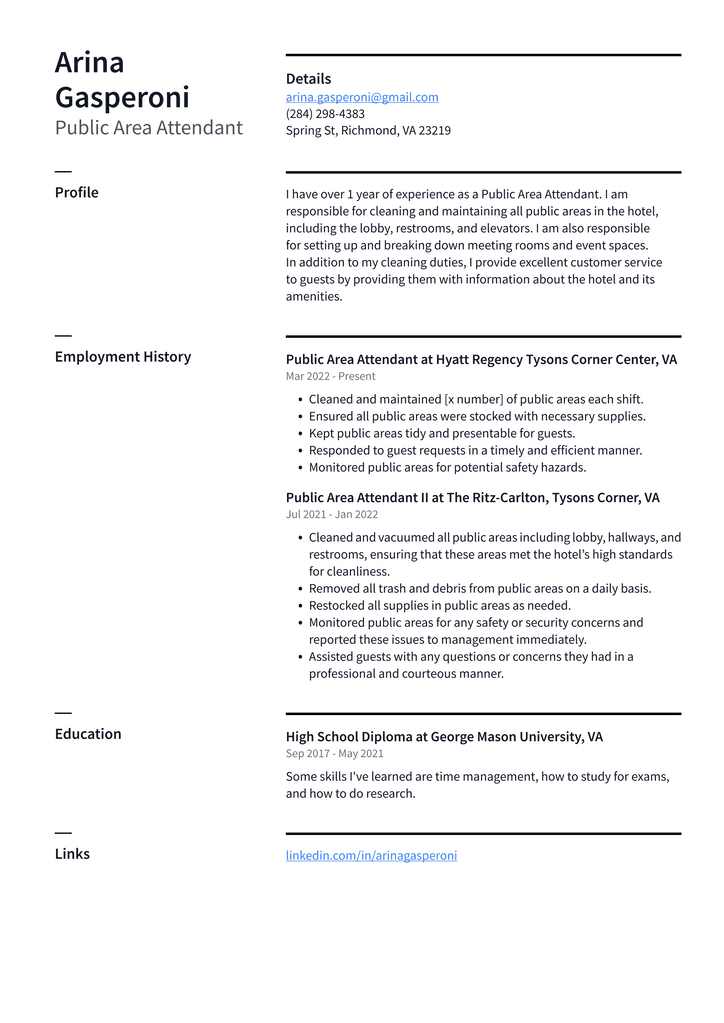
Download This Public Area Attendant Resume as PDF
Laundry Attendant Resume Example
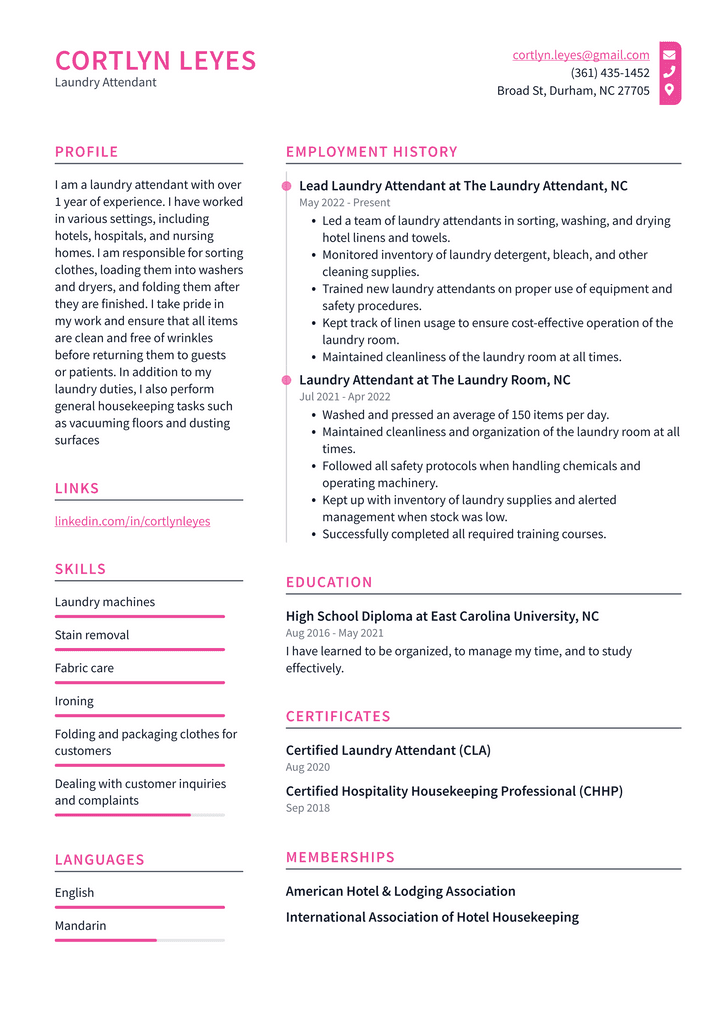
Download This Laundry Attendant Resume as PDF
Housekeeping Lead Resume Example
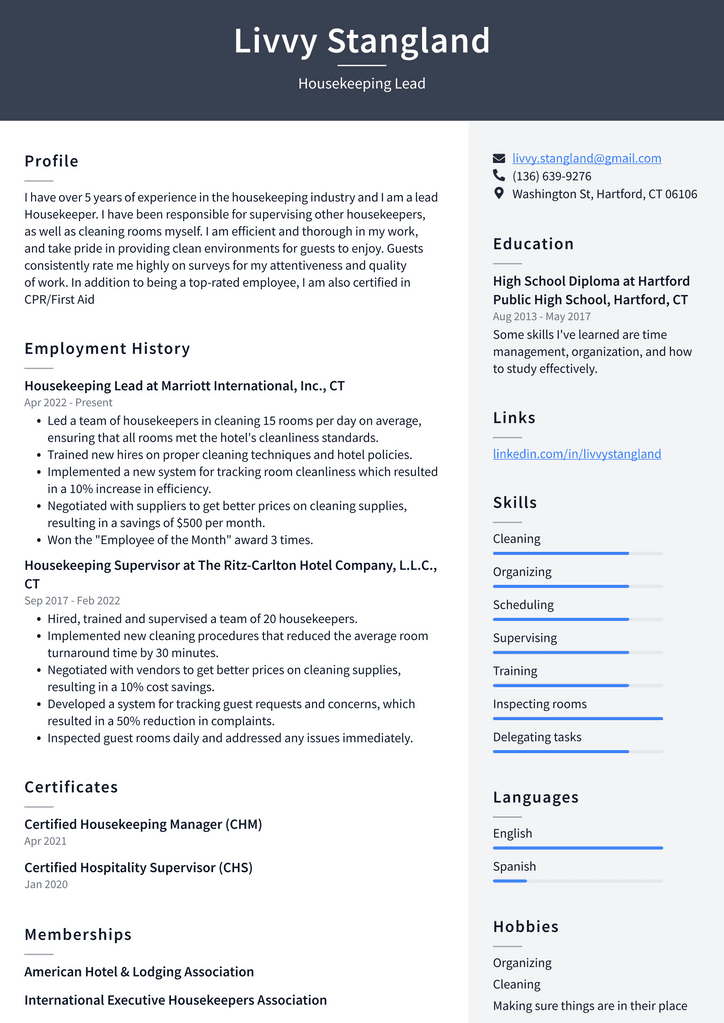
Download This Housekeeping Lead Resume as PDF
A Short Guide to Writing a Resume for Housekeeping
If you want your resume to stand out from the crowd, it’s essential to understand the process of writing a resume from scratch. Here’s what you need to know: To make your resume as effective as possible, you should write your resume based on the job description. The best way to do this is to find the job description online and then write your resume based on its requirements. If you don’t have any work experience, starting with a general resume highlighting your education and skills may be a good idea. Resumes for recent graduates often work best as a combination of an education-focused and skills-based resume. When writing a resume, it’s important to remember that hiring managers don’t have much time to read your resume. Most will only spend around 30 seconds skimming your resume before deciding whether they should keep reading or move on to the next candidate.
The Different Types of Resumes
Education-focused Resume: This type of resume focuses on your academic accomplishments, including any coursework and degrees you have completed. It often has a chronological format and is a good choice for recent graduates.
Skills-based Resume: This type of resume focuses on your skills, accomplishments, and qualifications. It often combines chronological and functional formats and is a good choice for people with limited work experience.
Chronological Resume: This type of resume has a standard format that most people are familiar with. It follows a chronological order and is a good choice for people with a long and consistent work history.
Functional Resume: This type of resume focuses on your skills and experience, regardless of when you obtained those skills. It often has a combination of chronological and functional formats and is a good choice for people who have gaps in their employment history. Hybrid Resume – This type of resume combines two or more of the above resume types.
What to Include in Your Housekeeping Resume
Education: You should always list your highest level of education first. Include the name of the school, the city, and the degree you received. You can also include the expected graduation date if you’re still in school. However, some employers may prefer you leave off the graduation date if you’re attending a less traditional school.
Experience: Your work experience should be listed below your education. Include the name of each company, the city, and the position you held. You can also include the dates worked for each employer, but this is optional.
Skills: This section is where you want to highlight your skills and abilities that are relevant to the job. You can also include any skills that don’t appear elsewhere in the resume but make sure they are relevant to the job.
Honors and Awards: If you have received any suitable honors or awards for the job, include them in your resume.
Personal attributes: Employers often look for specific qualities, such as reliability or flexibility. Be sure to have these characteristics in your resume if they are relevant to the job you are applying for.
Tips for Writing a Professional Resume
Make it concise: A resume should never exceed one page. Even if you have extensive experience, you don’t want potential employers to be overwhelmed when they see the length of your resume.
Keep it focused: Your resume should focus on the skills and experience relevant to the job you are applying for. Make sure not to include irrelevant information that might distract from your strengths.
Make sure your resume is error-free: One mistake on your resume could cost you a great job opportunity. Make sure your resume is free of any grammatical errors or typos.
Use the right tone: Although it’s important to be succinct, it’s also important to sound confident. Make sure you are using the correct language in your resume, such as using “effectiveness” instead of “efficiency” and “material” instead of “product.”
Conclusion
Your resume is your first opportunity to showcase why you are the best candidate for the job. It should be concise, relevant, and error-free. Remember to use the format that best highlights your skills and experience for housekeeping jobs. Your resume should be well-written and easy to read. It should list your relevant skills, accomplishments, education, and experience. Remember to proofread your resume for typos and grammatical errors to avoid any red flags from employers.